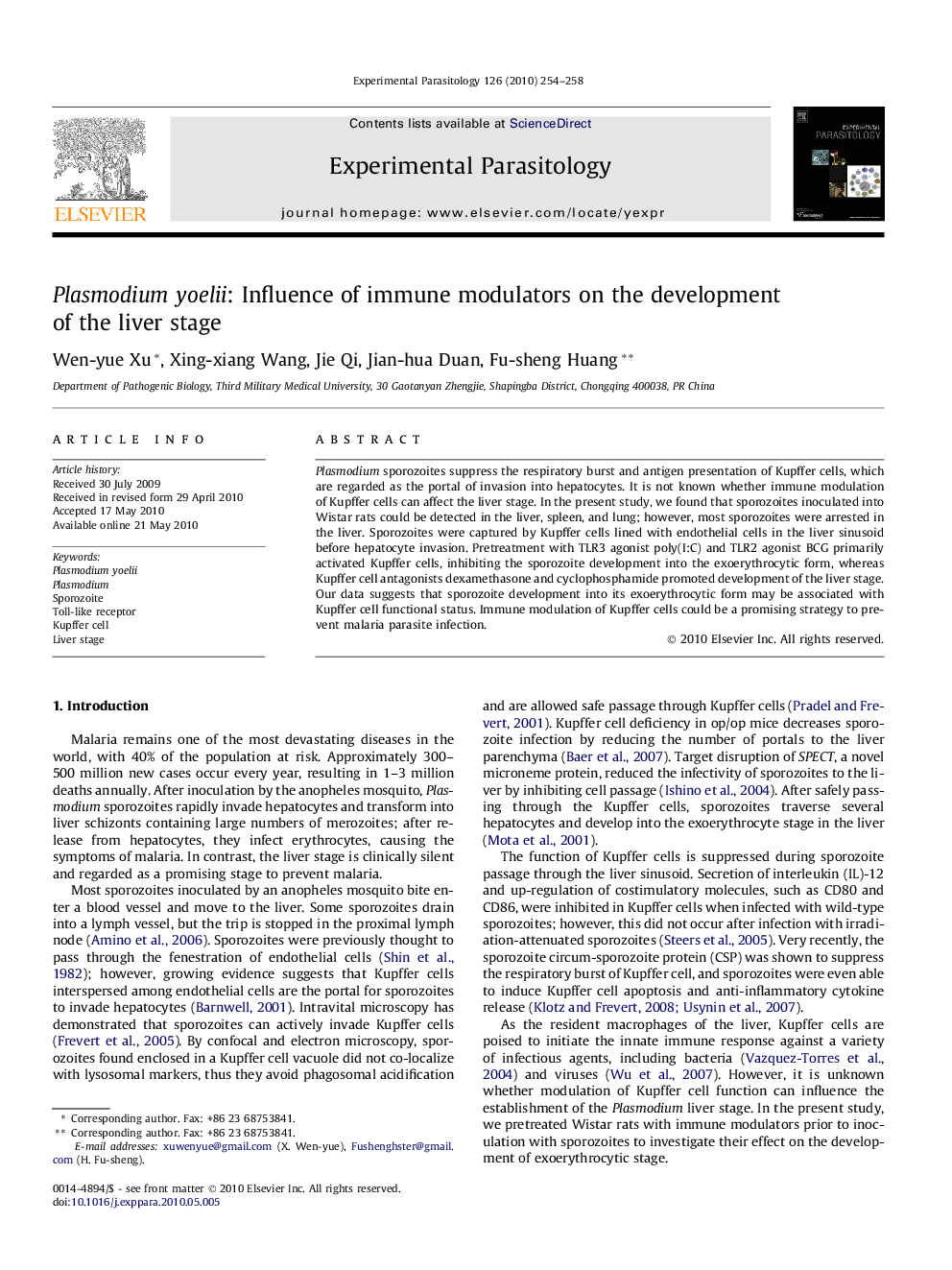| Article ID | Journal | Published Year | Pages | File Type |
|---|---|---|---|---|
| 4371238 | Experimental Parasitology | 2010 | 5 Pages |
Abstract
Plasmodium sporozoites suppress the respiratory burst and antigen presentation of Kupffer cells, which are regarded as the portal of invasion into hepatocytes. It is not known whether immune modulation of Kupffer cells can affect the liver stage. In the present study, we found that sporozoites inoculated into Wistar rats could be detected in the liver, spleen, and lung; however, most sporozoites were arrested in the liver. Sporozoites were captured by Kupffer cells lined with endothelial cells in the liver sinusoid before hepatocyte invasion. Pretreatment with TLR3 agonist poly(I:C) and TLR2 agonist BCG primarily activated Kupffer cells, inhibiting the sporozoite development into the exoerythrocytic form, whereas Kupffer cell antagonists dexamethasone and cyclophosphamide promoted development of the liver stage. Our data suggests that sporozoite development into its exoerythrocytic form may be associated with Kupffer cell functional status. Immune modulation of Kupffer cells could be a promising strategy to prevent malaria parasite infection.
Related Topics
Life Sciences
Immunology and Microbiology
Parasitology
Authors
Wen-yue Xu, Xing-xiang Wang, Jie Qi, Jian-hua Duan, Fu-sheng Huang,
